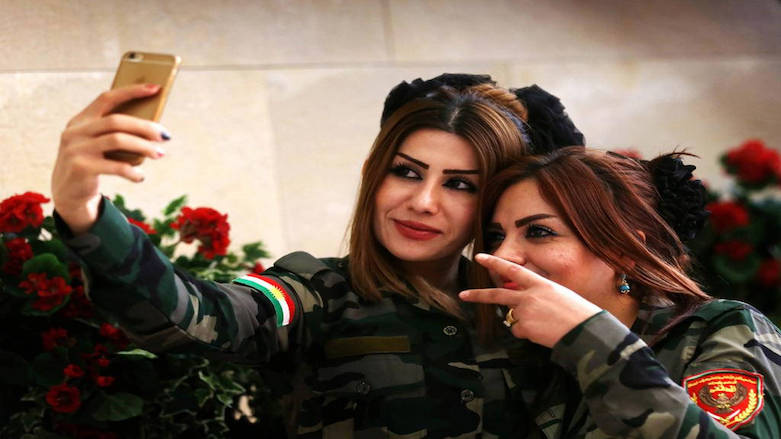Kurdish women become protagonists in American novel

ERBIL, Kurdistan Region (Kurdistan 24) – Maxime Trencavel was in elementary school when he first started writing adventure epics. His hobby later turned him into a writer interested in exploring various cultures, including the Kurdish one.
His adventure romance “The Matriarch Matrix,” published in 2017, follows the story of a Kurdish woman, Zara Khatum, and her matriarchal lineage.
Trencavel describes his encounter with Kurdish culture as “first accidental, later very, very purposeful.”
He wanted to “trace the influence on the modern world of the creators of the prehistoric monolithic site Göbekli Tepe, possibly the world’s oldest sanctuary,” he told Kurdistan 24.
His original storyline featured a patriarchal lineage extending from 9600 BCE to a few years into the future.
“A simple, naïve, sheltered editor from California would be thrust into the futuristic yet modern conflict around the intersection of Turkey, Syria, and Iraq,” but to fight stereotypes, he decided to follow matriarchy instead. That’s how he discovered Kurdish women, inspired by the female fighters battling the Islamic State (IS).
He says he read about Kurdish history, culture, and traditions as much as he could that was published in English—biographies, political analyses, refugee stories, cultural stories. “I found but a few Kurdish films dubbed or subtitled in English or French and watched them intently.”
“We have an apartment in Brussels near a Kurdish neighborhood. Thus, I would walk in these areas and observe as much I could,” he said.
“As I learned of the long history of cultural oppression the Kurds have faced, I became deeply touched. I found the Kurdish culture and tradition was much deeper and richer than the pretty western media clips, and essays about Kurdish women fighting IS,” he added.

His female readers from the US and Europe bonded with Zara’s character, her suffering, and, ultimately, her strength. After receiving feedback, he made the Kurdish woman the focal point of the book.
As he explored Kurdish culture, he was touched “by the tenacity and resilience” of the Kurdish people.
“The stories I read of the Anfal Campaign rang reminiscent of other horrific acts of genocide that have been perpetrated throughout history against many other cultural groups. And, the Kurdish history has many other examples of genocidal campaigns throughout the centuries,” Trencavel said.
He believes the reason the world is unaware of these tragic events is that history is told through the eyes of the victors, and he wants his book to bring forth some of this history.
The author wants to urge fellow Westerners to “look deeper at what you see in the news. There’s more to the story [of Kurds].”
“The saying, ‘The Kurds have no friends but the mountains,’ bespeaks to the history of promises and alliances being broken only to see oppression re-emerge,” the writer said.
The third opening paragraph of the “The Matriarch Matrix” reads: “Our present has happened in the past from where our future appears. Our lesson learned from the voice of the object.”
Editing by Karzan Sulaivany
